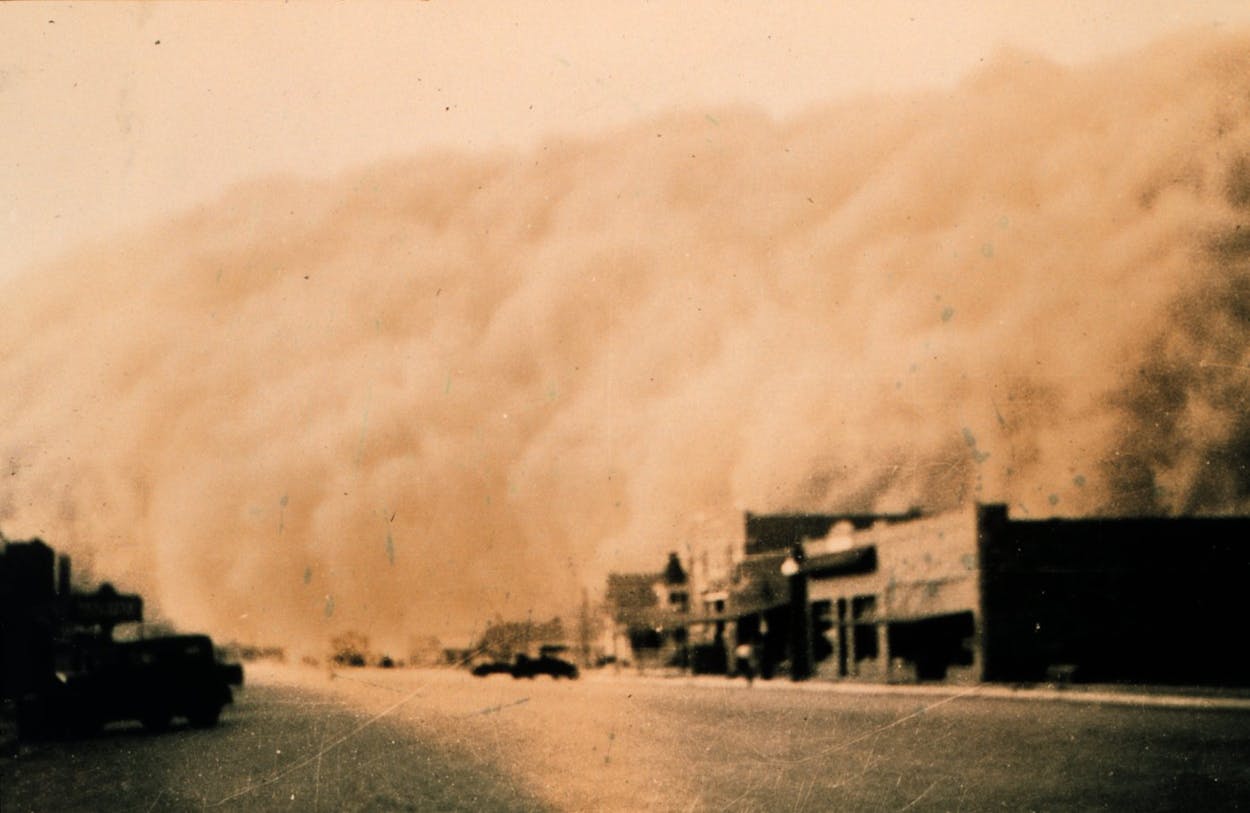With the persistent drought arguably second only to Rick Perry’s presidential campaign as the state’s biggest issue, we take a look at the latest drought-related headlines.
Fewer pecans means fewer pies
On October 29, Barry Schlachter of the Fort Worth Star-Telegram reported on the state’s diminished pecan crop. Because of the drought, Texas will soon drop from the number-two pecan-producing state (behind Georgia) to number three. At the same time, American exports of pecans to China have risen from 3.75 million pounds in 2005 to 62.6 million pounds in 2010.
Trees need water, too
The Southwest Farm News talked to Texas Agrilife Extenson agents in Wade and Zavala counties, as well as horticulturist Dr. Larry Stein, who said that in addition to this year’s reduced pecan crop, there is the possibility of long-term tree death.
Money drought
Kiah Collier (of the San Angelo Standard-Times) and Kate Galbraith (of the Texas Tribune) wrote about the drought’s statewide economic impact. They pointed to Robert Lee’s E.V. Spence Reservoir, which is 99.5 percent empty. The reservoir is both the town’s water supply and a major revenue source, as it is the tiny town’s top recreational attraction. Lakefront realtors, politicians and local business boosters are greatly concerned about how water issues could affect all kinds of commerce.
No water for thirsty horses
Steve Campbell of the Star-Telegram reported that equine rescue groups are starting to be overtaxed. No drought means no hay, leaving ranchers, stable operators, and recreational horse owners with no choice but to sell their animals—if they can. Some owners have been forced to give away horses, and abandonment is on the rise.
Dust Dust Dust Fest
Even attendees of Fun Fun Fun Fest, in Austin, couldn’t escape the effects of the drought. “This year was made trickier by the dry air, dirt, and dust permeating the grounds,” wrote Craig Hlavaty of the Houston Press about the three-day music festival, “which sometimes made breathing a fun fun fun task.”
Rain door closed means discovery window opens
Allen Turner of the Houston Chronicle investigated how the dried-up streams, rivers and lakebeds might lead to discovery opportunities for archeologists, who can unearth early Texas ferries and cargo ships from World War I. But the Texas Historical Commission is actually concerned that people may attempt to loot the exposed sites before they can be properly preserved or excavated.







